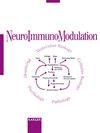STEERING THE MICROBIOTA-GUT-BRAIN AXIS BY ANTIBIOTICS TO MODEL NEURO-IMMUNE-ENDOCRINE DISORDERS.
IF 2.2
4区 医学
Q3 ENDOCRINOLOGY & METABOLISM
引用次数: 0
Abstract
BACKGROUND Over the last century, animal models have been employed to study the gut-brain axis and its relationship with physiological processes, including those necessary for survival, such as food intake regulation and thermoregulation; those involved in diseases, ranging from inflammation to obesity; and those concerned to the development of neurodegenerative diseases and neuropsychiatric disorders, such as Alzheimer's disease and autism spectrum disorder, respectively. SUMMARY The gut microbiota has been recognized in the last decade as an essential functional component of this axis. Many reports demonstrate that the gut microbiota influences the development of a vast array of physiological processes. Experiments that use animal models to assess the effect of the gut microbiota on the brain and behavior may involve the acute or chronic administration of wide-spectrum antibiotics. KEY MESSAGES This narrative review summarizes the beneficial or detrimental effects of antibiotics administered prenatally or postnatally to rodents during acute or chronic periods in a wide range of protocols. These include animal models of disease and behavioral paradigms of learning and memory, anxiety, obsessive-compulsive disorder, and autism spectrum disorder. Biomarkers and behavioral assays associated with antibiotic exposure are also included in this review.通过抗生素引导微生物群-肠-脑轴来模拟神经-免疫-内分泌紊乱。
背景上个世纪,人们利用动物模型来研究肠道-大脑轴及其与生理过程的关系,包括生存所必需的过程,如食物摄入调节和体温调节;与疾病有关的过程,从炎症到肥胖;以及与神经退行性疾病和神经精神疾病的发展有关的过程,如阿尔茨海默病和自闭症谱系障碍。许多报告表明,肠道微生物群影响着一系列生理过程的发展。利用动物模型评估肠道微生物群对大脑和行为的影响的实验可能涉及到急性或慢性服用广谱抗生素。其中包括疾病动物模型以及学习和记忆、焦虑、强迫症和自闭症谱系障碍的行为范例。本综述还包括与抗生素暴露相关的生物标志物和行为测定。
本文章由计算机程序翻译,如有差异,请以英文原文为准。
求助全文
约1分钟内获得全文
求助全文
来源期刊

Neuroimmunomodulation
医学-免疫学
CiteScore
3.60
自引率
4.20%
发文量
35
审稿时长
>12 weeks
期刊介绍:
The rapidly expanding area of research known as neuroimmunomodulation explores the way in which the nervous system interacts with the immune system via neural, hormonal, and paracrine actions. Encompassing both basic and clinical research, ''Neuroimmunomodulation'' reports on all aspects of these interactions. Basic investigations consider all neural and humoral networks from molecular genetics through cell regulation to integrative systems of the body. The journal also aims to clarify the basic mechanisms involved in the pathogenesis of the CNS pathology in AIDS patients and in various neurodegenerative diseases. Although primarily devoted to research articles, timely reviews are published on a regular basis.
文献相关原料
| 公司名称 | 产品信息 | 采购帮参考价格 |
|---|
 求助内容:
求助内容: 应助结果提醒方式:
应助结果提醒方式:


